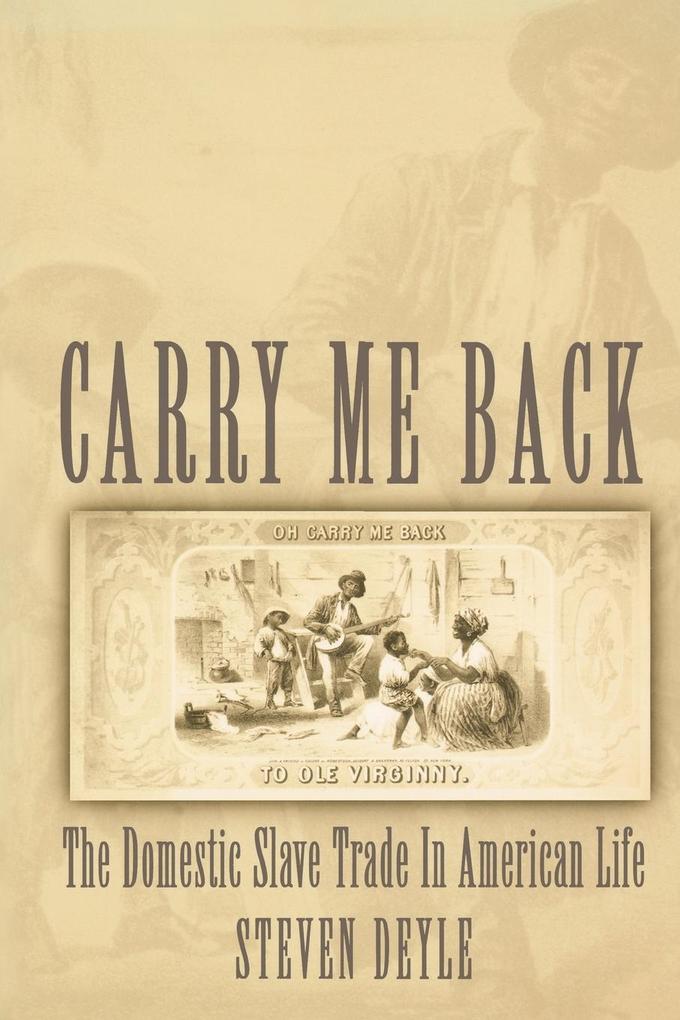
Zustellung: Di, 24.06. - Fr, 27.06.
Versand in 6 Tagen
VersandkostenfreiBestellen & in Filiale abholen:
This book represents a detailed accounting of the movement of slaves from market to market within the United States, as well as an examination of the lives of those operating and participating in the business world of those markets. The book considers the impact of the slave trade on American life writ large, making this a major contribution to American history prior to Reconstruction.
Produktdetails
Erscheinungsdatum
01. September 2006
Sprache
englisch
Seitenanzahl
412
Autor/Autorin
Steven Deyle
Verlag/Hersteller
Produktart
kartoniert
Gewicht
623 g
Größe (L/B/H)
234/156/22 mm
ISBN
9780195310191
Entdecken Sie mehr
Pressestimmen
"Scholars are aware of some aspects of Deyle's account, but never have all the pieces been pulled together in such a way. As a result, Carry Me Back may wel become that rarest of all things in the modern publishing world: the definitive study."--Douglas R. Egerton, The Alabama Review"Deyle offers a comprehensive examination of the domestic slave trade that is stunning it is breadth.... His work is remarkable for placing the internal slave trade squarely in the context of the market revolution."--Jeff Forret, The Journal of Southern History"Deyle's contribution is significant."--MichaelTTadman, IUniversity of Liverpool"Carry Me Back is a book we have long needed--a synthetic, region-wide treatment of the domestic slave trade. Deyle's deep research and lucid writing convincingly show that the sale and transport of human property from the upper to lower South was a national tragedy of epic proportions, a grand economic enterprise that both forged the Cotton Kingdom and was the root of its undoing. Behold! The story of how the largest source of wealth in antebellum America belongs at the center of our national narrative, and how it haunts us still."--David W. Blight, author of Race and Reunion: The CivilWar in American Memory and Director, the Gilder Lehrman Center for the Study of Slavery, Resistance and Abolition, Yale University"Prodigiously researched and convincingly argued, Steven Deyle's Carry Me Back places the slave market at the center of the nineteenth-century United States. Carry Me Back tells the story of the disastrous effects of that market on black lives, of its crucial place in the Southern market revolution being pursued by their white masters, and of the role of images of the trade in the argument of nineteenth-century opponents of slavery. The information necessary to dismantle U.S. slavery, it turns out, was produced along the bloody leading edge of its commercial economy."--Walter Johnson, author of Soul by Soul: Lif
Bewertungen
0 Bewertungen
Es wurden noch keine Bewertungen abgegeben. Schreiben Sie die erste Bewertung zu "Carry Me Back" und helfen Sie damit anderen bei der Kaufentscheidung.









